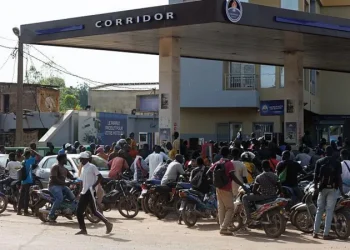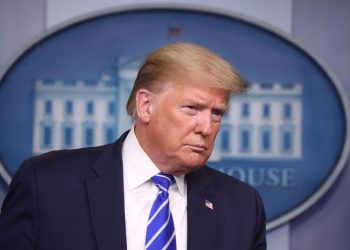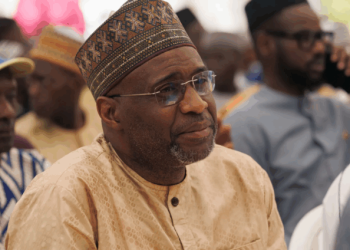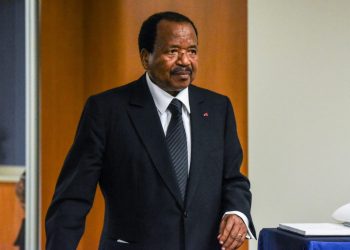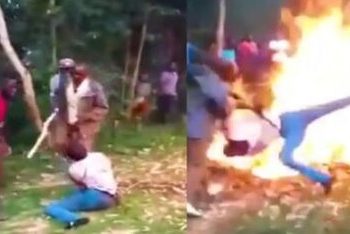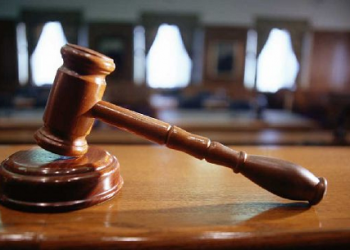Namibia’s lesbian, gay, bisexual and transgender representatives want the government to address their concerns, including building alternative toilet facilities specifically for them.
The community representatives, known as lesbian, gay, bisexual, transgender and queer plus (LGBTQ+), listed their other concerns such as discrimination for being different, and the threat of violence.
They implored the politicians who would win the upcoming national elections on 27 November to address the concerns from the LGBTQ+ community. However, some politicians contesting the upcoming national elections have already said they do not have a stance on LGBTQ+ concerns, while others consider it a private matter.
The chairperson of the Southern African Trans Forum, Deyoncè Naris, told the Namibia University of Technology (Nust) Echoes that she has been struggling to deal with verbal abuse such as name-calling and mocking when she uses public toilets.
Naris said she was at times denied access to public toilets because she is a transgender woman – a woman who was male at birth.
These behaviours and the lack of alternative toilet facilities, she stated, deprive them of their basic rights, and should be considered as serious discrimination as well as “an act of violence” against the LGBTQ+ community.
“Not being allowed to use a female toilet, which is my preferred toilet, is also a form of gender-based violence,” she argued.
Naris said legislators should thus redefine gender-based violence to include violence or discrimination against minority genders, adding that this was necessary because trans communities have always been excluded from mainstream anti-gender violence advocacy activities.
This is despite the fact that GBV is a human rights issue, and is not specific to the LGBTQ+ community.
Discriminatory law
Article 10 of the Namibian Constitution contains a clause which states that “no persons may be discriminated against on the grounds of sex, race, colour, ethnic origin, religion, creed or social or economic status”.
LGBTQ+ feel they are still discriminated against, despite these guaranteed rights.
LGBTQ+ and women’s rights activist Linda Baumann raised concerns that the current laws do not recognise gender-based violence against minority genders.
She stated that the law in Namibia also discriminates against the LGBTQ+ community.
This, according to her, was because the country’s sexual violence and rape laws only define gender in the traditional and orthodox manner, which only accommodates heterosexual males and females.
Baumann said there is no legislation specifically protecting the LGBTQ+ community.
For instance, anal sex is considered an unnatural sexual offence, which directly affects the LGBTQ+ community, she continued.
“The law only defines domestic violence as an act perpetrated by a person of the opposite sex. This means that all other reported cases related to sexual orientation, gender identity and expression, and sex characteristics (SOGIESC) will be regarded as common assault, which does not carry the same weight as a domestic violence charge,” she said.
Baumann believes GBV as a national issue should be inclusive and progressive in “ensuring all persons are protected against any form of violence”.
Her argument was supported by the Legal Assistance Centre’s gender research and advocacy project coordinator, Dianne Hubbard, who confirmed that Namibian laws discriminate against the LGBTQ+ community.
She said this discrimination was enacted through the criminalisation of consensual anal sex, restricting the options for formalising same-sex relationships, and failing to adequately protect LGBTQ+ persons from discrimination, victimisation and violence.
Former Mr Gay Namibia Wendelinus Hamutenya said the LGBTQ+ community was at particular risk of gender-based violence because of their sexual orientation, which is not traditionally accepted, and still considered to be against social norms and values.
This, he said, leads to rejection, sexual and physical harassment, and discrimination by the public.
Hamutenya stated that he experienced GBV and also witnessed it happening, especially in the northern parts of Namibia, where young schoolboys are subjected to domestic violence when their family members refuse to accept their sexual or gender expression.
Taboo
The LGBTQ+ concerns come at a time when around 1,3 million Namibians are registered to vote.
The Namibian reported last month how various political parties have disregarded issues concerning the minority genders and their marriages in their election manifestos.
The Popular Democratic Movement (PDM) refused to talk about issues related to LGBTQ+, saying it was a “bedroom matter”, and therefore private.
PDM secretary general Manuel Ngaringombe, however, said his party will support anything that has anything to do with sexual health, such as the free distribution of condoms, and access to health.
“When it comes to either you are skew or straight or whatever you call it, it is a private matter. We do not have a clear position yet, but it is important not to go into people’s private lives,” he stressed.
Amongst the parties against the legalisation of marriages for the LGBTQ+ community is the United Democratic Front, RDP and CoD, arguing that the issue was against tradition and Christian teachings, and therefore unnatural.
CoD pledged to protect all human beings and their fundamental human rights, but the party said it does not support the legalisation same-sex marriages.
“We are Christians, and cannot go against Christianity – same sex marriage is unnatural,” CoD’s Vaino Amuthenu told The Namibian.
The United People’s Movement (UPM), however, believes that the issue of LGBTQ+ marriages “needs consultation to ensure that all understand and respect the rights of others”.
The ruling party Swapo has for years bashed LGBTQ+ rights, but the overtly critical tone has subsided in recent years.
The party has not publicly advocated gay or lesbian rights.
In fact, president Hage Geingob seemed to make light of the issue at a press conference in 2015, a day before he was sworn in as Namibia’s third president.
Asked what he would do about the concerns of gays and lesbians in Namibia “in terms of their rights”, Geingob said: “My goodness, we are talking about poverty eradication, unemployment, food, and yet my young brother comes up with gay issues!
“Those are not the issues we are talking about. Those things are luxuries. I am talking about poverty eradication, lack of houses,” he stated.
He added: “Are you oppressed? Are you suppressed? Are gays oppressed here? Is there any gay who has been arrested here for being gay? Those are issues that you should report to the police”.
Geingob said the police deal with such cases.
“Why do you create a problem where there is no problem? When I took my course in social problems, I learned that a social problem is what you make it to be. Even if there is no problem, you just complain, and make it a problem. There is no problem,” Geingob was quoted as saying.
source: All Africa








































